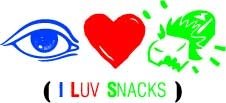Remember how you would sometimes see "Record is locked." in Geac PLUS? You may have thought the days of locked records were behind us, but they exist in every ILS, even Millennium. The phrase in Millennium, is the more gentle, "Record in use".
What do we do when we see this message?
- Make note of the record number involved. You'll see it in the message that appears. Include the letter and the number (for example, i51493002).
- Consider the possibilities: could someone else be legitimately using the number right now? If so, wait a while and try again. You can write down a transaction if the situation is time critical.
- Contact Barb Jarvis (x159) or Pam Skittino (x157), and tell them the record number and problem.
- They will release the record for you.
What does "Record in use" mean?
To preserve data integrity, an item, patron, bibliographic, or order record can only be changed by one user at a time. Records are changed for many reasons, such as when items are checked in, when a patron is checking out, a cataloger is making changes to an item record, or Millennium is recording a transaction. When a record is being changed by a staff member or patron and someone else tries to do something else to it, you'll see the message, "Record in use".
Occasionally, records get hung up in the system and must be released.


 Thanks to Innovative and Pam Skittino, we have more ways to search for patrons with Millennium.
Thanks to Innovative and Pam Skittino, we have more ways to search for patrons with Millennium. 




